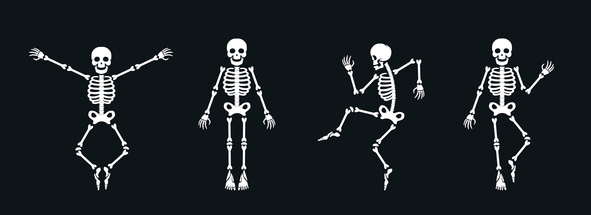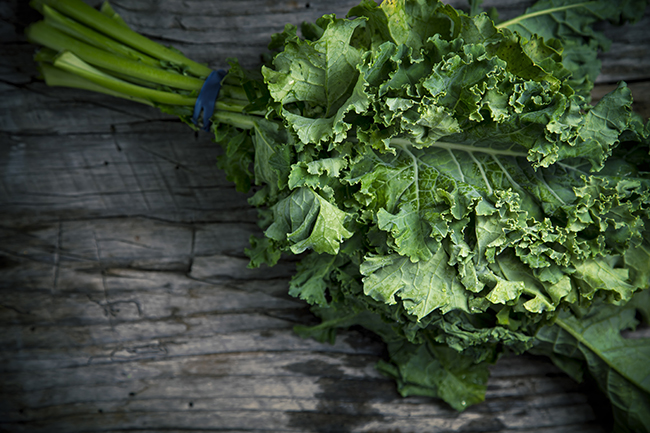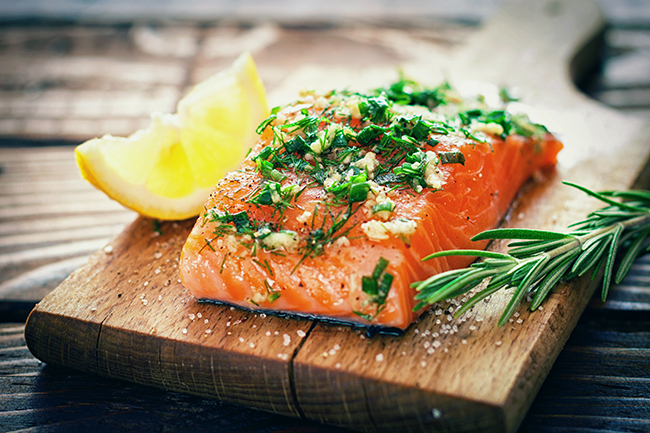We all probably associate bone health with calcium, but there are other ways to keep our levers in peak condition…

Building healthy bones is extremely important. Minerals are incorporated into your bones during childhood, adolescence and early adulthood. Once you reach 30 years of age, you have achieved peak bone mass.
If not enough bone mass is created during this time or bone loss occurs later in life, you have an increased risk of developing fragile bones. Fortunately, many nutrition and lifestyle habits can help build strong bones and maintain them as you age, and it’s never too early to start…
1 Eat lots of vegetables
Vegetables are great for your bones. They’re one of the best sources of vitamin C, which stimulates the production of bone-forming cells. Vegetables also seem to increase bone density, a measurement of the amount of calcium and other minerals found in your bones.

2 Perform strength training and weight-bearing exercises
Engaging in specific types of exercise can help you build and maintain strong bones. One of the best types of activity for bone health is weight-bearing or high-impact exercise, which promotes the formation of new bone.
Studies in children, including those with type 1 diabetes, have found that this type of activity increases the amount of bone created during the years of peak bone growth.

3 Consume enough protein
Getting enough protein is important for healthy bones. In fact, about 50% bone is made of protein.
Researchers have reported that low protein intake decreases calcium absorption and may also affect rates of bone formation and breakdown.
However, concerns have also been raised that high-protein diets leach calcium from bones in order to counteract increased acidity in the blood.
Nevertheless, studies have found that this doesn’t occur in people who consume up to 100g (3½oz)protein daily, as long as this is balanced with plenty of plant foods and adequate calcium intake. Diets containing a high percentage of calories from protein may help preserve bone mass during weight loss.
4 Eat high-calcium foods throughout the day
Calcium is the most important mineral for bone health, and it’s the main mineral found in your bones.
Because old bone cells are constantly broken down and replaced by new ones, it’s important to consume calcium daily to protect bone structure and strength.

5 Get plenty of vitamin D and vitamin K
Vitamin D and vitamin K are extremely important for building strong bones.
Vitamin D helps your body absorb calcium. You can get enough vitamin D through sun exposure and food sources such as fatty fish, liver and cheese. The two most common forms of vitamin K2 are MK-4 and MK-7. MK-4 exists in small amounts in liver, eggs and meat.
6 Avoid very low-calorie diets
Dropping calories too low is never a good idea. In addition to slowing down your metabolism, creating rebound hunger and causing muscle mass loss, it can also be harmful to bone health. Studies have shown that diets providing fewer than 1,000 calories per day can lead to lower bone density in normal-weight, overweight or obese individuals. To build and maintain strong bones, follow a well-balanced diet of at least 1,200 calories per day. It should include plenty of protein and foods rich in vitamins and minerals.

7 Consider taking a collagen supplement
While there isn’t a lot of research on the topic yet, early evidence suggests that collagen supplements may help protect bone health.
Collagen is the main protein found in bones. It contains the amino acids glycine, proline and lysine, which help build bone, muscle, ligaments and other tissues. Collagen hydrolysate comes from animal bones and is commonly known as gelatine. It has been used to relieve joint pain for many years.
Although most studies have looked at collagen’s effects on joint conditions like arthritis, it appears to have beneficial effects on bone health as well.
8 Maintain a stable, healthy weight
In addition to eating a nutritious diet, maintaining a healthy weight can help support bone health.
In fact, low body weight is the main factor contributing to reduced bone density and bone loss. On the other hand, some studies suggest that being obese can impair bone quality and increase the risk of fractures due to the stress of excess weight. Repeatedly losing and regaining weight also appears detrimental to bone health. One study found that bone loss during weight loss was not reversed when weight was regained, which suggests that repeated cycles of losing and gaining weight may lead to significant bone loss over a person’s lifetime.

9 Include foods high in magnesium and zinc
Magnesium plays a key role in converting vitamin D into the active form that promotes calcium absorption. Zinc is needed in very small amounts. It helps make up the mineral portion of your bones, promotes the formation of bone-building cells and prevents the excessive breakdown of bone.
10 Consume hoods high in omega-3 fats
Omega-3 fatty acids are well known for their anti-inflammatory effects. They’ve also been shown to help protect against bone loss during the ageing process.
In addition to including omega-3 fats in your diet, it’s also important to make sure your balance of omega-6 to omega-3 fats isn’t too high. Generally speaking, it’s best to a ratio of 4:1.

By Franziska Spritzler from www.authoritynutrition.com.
